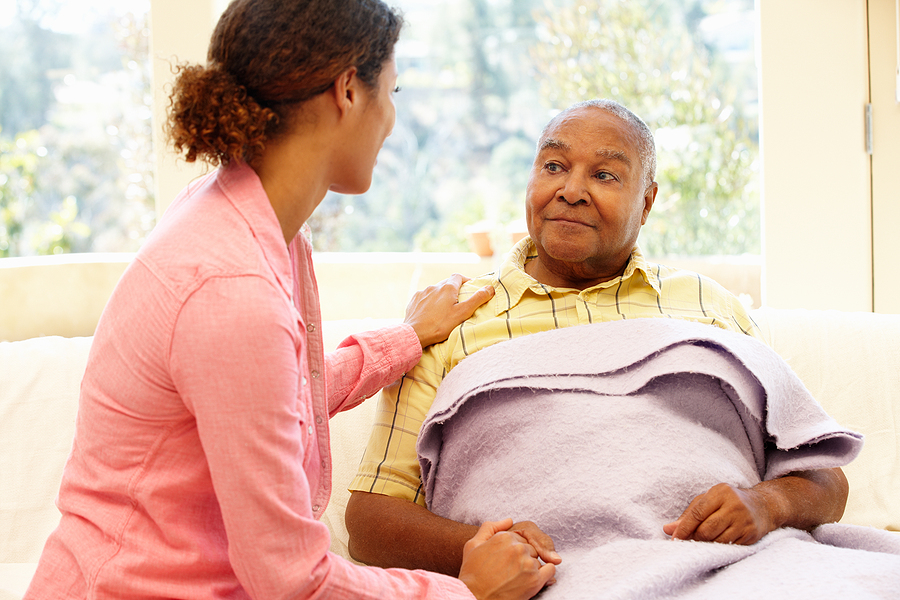Respiratory illnesses like Covid-19 and RSV have been dominating the news, but they’re not the only respiratory illnesses that can be dangerous for seniors. The flu is still a big concern for seniors. Every year hundreds of thousands of seniors are hospitalized because of severe flu symptoms. For seniors that have underlying health issues the flu can be very dangerous.
If seniors or their home care providers see any of the symptoms of the flu they should immediately take precautions. If the flu is caught early it may be possible for seniors to get medication from a doctor that can shorten the duration and make the symptoms less severe. If you can’t be around your senior parent all the time make sure their home care provider is watching for any of these early signs of the flu:
Fever
The most obvious symptom of the flu is a sudden onset of fever. A fever that is above 100.4°F (38°C) is a cause for concern. Fever is the body’s natural response to infection and is often accompanied by other flu symptoms. Seniors that develop a fever should let their doctor know right away and follow any medical instructions.
Chills and Sweating
Along with fever, seniors with the flu may experience chills and sweating. These symptoms are common early signs of the flu and are indicative of the body’s immune response to the virus. Seniors with the flu will alternate between feeling extremely cold and extremely warm. The chills and sweating can also hit seniors very quickly as the flu takes hold.
Body Aches and Muscle Pain
Muscle aches and pains, also known as myalgia, are common early symptoms of the flu. These sensations can affect various parts of the body, including the back, arms, legs, and joints. The severity of muscle pain can range from mild discomfort to significant soreness, making movement and daily activities challenging. It can be difficult to know if body and muscle aches are caused by an illness like the flu or everyday activities. As a general rule of thumb if body and muscle aches appear with other symptoms of the flu then they are probably caused by flu.
Fatigue and Weakness
Feeling unusually tired or fatigued is another early symptom of the flu. This overwhelming sense of exhaustion can persist even after getting adequate rest and sleep. Weakness and lethargy may accompany fatigue, making it difficult to carry out routine tasks and activities.
Sore Throat
A sore throat is another common early symptom of the flu. Seniors may have pain, irritation, or scratchiness in the throat. Swallowing may be painful, and the throat may feel dry or swollen. Sore throat can occur alongside other respiratory symptoms such as coughing and congestion.
Cough
A dry or productive cough is a typical early symptom of the flu. The cough may start as a dry, hacking cough and later develop into a productive cough with mucus or phlegm. Coughing is the body’s way of clearing the respiratory passages of irritants and excess mucus.
Headache
Many individuals with the flu experience headaches as an early symptom. These headaches can range from mild to severe and may be accompanied by other flu symptoms such as fever, muscle aches, and fatigue. Headaches can interfere with daily activities and worsen with movement or exposure to light.
Nasal Congestion
Nasal congestion, stuffiness, or a runny nose can occur early in the course of the flu. The nasal passages may feel blocked or congested, making it difficult to breathe through the nose. Sneezing and postnasal drip may also accompany nasal congestion.
Loss of Appetite
Loss of appetite is a common early symptom of the flu, as individuals may feel nauseous or unwell. The flu virus can affect the digestive system, leading to gastrointestinal symptoms such as nausea, vomiting, or diarrhea in some cases.


